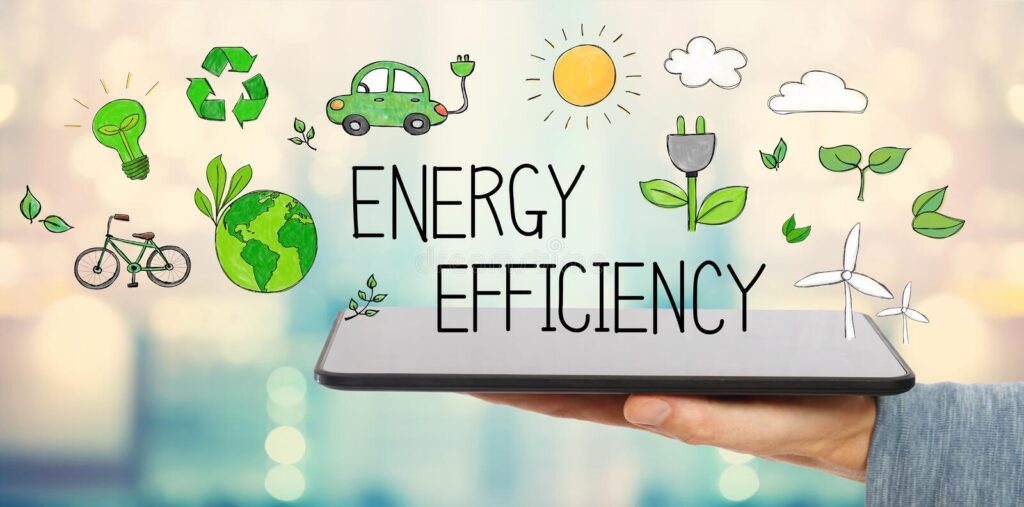The benefits of energy efficiency go beyond lowering costs and saving the environment. They boost productivity, creating a virtuous cycle.
Some may be suspicious of their utility company encouraging them to use less energy. However, they have valid justifications for doing so. Energy providers can benefit from increased energy efficiency by reducing the need for new power generation or transmission capacity. They can also reduce price volatility in wholesale markets and mitigate risks.
Financial Incentives
One of the most economical methods is energy efficiency to minimize carbon emissions costs for consumers, businesses, and communities. It is also essential to reduce dependence on traditional fossil fuels, contributing to air pollution and health problems that impact the poor and vulnerable. You can visit this site like https://bkvenergy.com/ for more information.
Regulatory policies and voluntary market-based programs can encourage contractors, manufacturers, retailers, and consumers to produce and sell more energy-efficient products and install them in homes, buildings, and industrial processes. Developing more energy-efficient buildings and appliances can reduce peak electricity demand, benefiting utilities that cannot generate enough power to meet demand. It can also prevent involuntary power shedding and other disruptions to service.
Various financial incentives can encourage EE and DR, including rebates for purchasing energy-efficient appliances and equipment. Incentives can also include time-of-use rates, which charge higher electricity rates during periods of high demand and lower rates during off-peak times. Many utilities also offer DR programs that allow customers to voluntarily shift their electricity use (for example, cooling and heating systems) or their energy-intensive industrial and manufacturing equipment to off-peak hours to avoid peak demand charges and help to stabilize utility grid supply.
Large firms spend millions, or even billions, on energy each year — but many treat it as a mere cost to be managed rather than a chance to lower risk, boost resiliency, and produce value. As environmental concerns grow and corporate sustainability expectations rise, energy efficiency is gaining traction as an important way to improve business performance.
Public Awareness
Many energy efficiency initiatives involve public entities, including governments and electric utilities. These can design information campaigns or offer various other services, such as energy audits that provide detailed recommendations for reducing electricity consumption. Such information-based interventions can help increase the uptake of energy efficiency options by providing incentives for change beyond pricing (e.g., peer comparisons of energy use or cost-benefit analysis).
In addition, the success of any effort to promote energy efficiency will depend on the level of engagement of key stakeholders and program participants. If the goal is to increase the uptake of energy efficiency measures among residential buildings, mission staff could engage local implementing agencies (IAs), nongovernmental organizations, utilities, retail and installation contractors, and manufacturers in setting goals and planning to program. This approach will build engagement, ensure reasonable and attainable goals, and increase the likelihood of success.
People will be more likely to act when they know their actions can make a difference. Incentives can play a role in this, but so too will make the benefits of energy efficiency tangible for citizens. Also, communicating energy-saving results realistically can motivate consumers, such as when power alert messages provide real-time information on electricity shortfall. This led to households using less electricity in compared with those that did not receive the alerts.
Customer Service
Customer service involves communicating with customers about the company’s products and services and assisting them as needed. Companies should strive to provide high customer service to attract and retain customers and increase revenue from existing customers. Customers want to be treated with respect and courtesy and have their questions answered quickly and accurately. In addition, they want to be offered various options for solving their problems and improving their experience with the company.
Energy efficiency is one way an energy provider can provide better customer service, as it demonstrates that the company is an excellent corporate citizen and wants to help its customers save money by using less energy. It also shows that the energy provider is concerned about peak demand and reducing its need to build new power supplies. Some utilities further encourage customers to reduce their energy use during peak demand.
Energy-efficiency service lines are a promising opportunity for some companies offering diagnostics, consulting, installation, or operations and maintenance services. These can add incremental recurring revenues to a customer base that already buys electricity and gas from the company.
Moreover, energy-efficiency service offerings can leverage existing strengths such as technical expertise, relationships, or a position on the energy delivery chain.
Education
Schools are a prime market for net-zero energy design and operation in new construction and profound energy retrofit projects of existing buildings. These schools benefit districts, occupants, and the environment by eliminating energy costs through efficiency investments while generating income through selling clean energy back to the grid.
In addition, reducing the electricity on the power grid simultaneously reduces stress. It prevents costly outages for consumers and the electric system, particularly for those living in marginalized communities and those with conditions exacerbated by pollution. Increasing energy efficiency also helps pave the way for a transition to renewables, whose production requires far fewer fossil fuels and emit fewer greenhouse gases.
School energy efficiency initiatives are a perfect way to encourage virtuous behaviors among the younger generation and raise awareness of how individual actions can influence our society’s energy consumption patterns. The energy program includes multiple activities that valorize children as a privileged target group for promoting virtuous energy behaviors: competition on reducing natural gas and electricity consumption, artistic competitions to encourage creativity and the Energy Charter, and gamification in the classroom.
Business customers are also an influential audience to reach when promoting energy efficiency. These companies are interested in saving money and boosting their public image, which can be accomplished through implementing energy-saving processes and switching to efficient equipment. It is crucial to communicate the benefits of energy efficiency to this audience by providing information on rebate programs that can help them achieve their goals and by sharing side-by-side comparisons of the cost savings associated with efficient products they would use in their operations.




